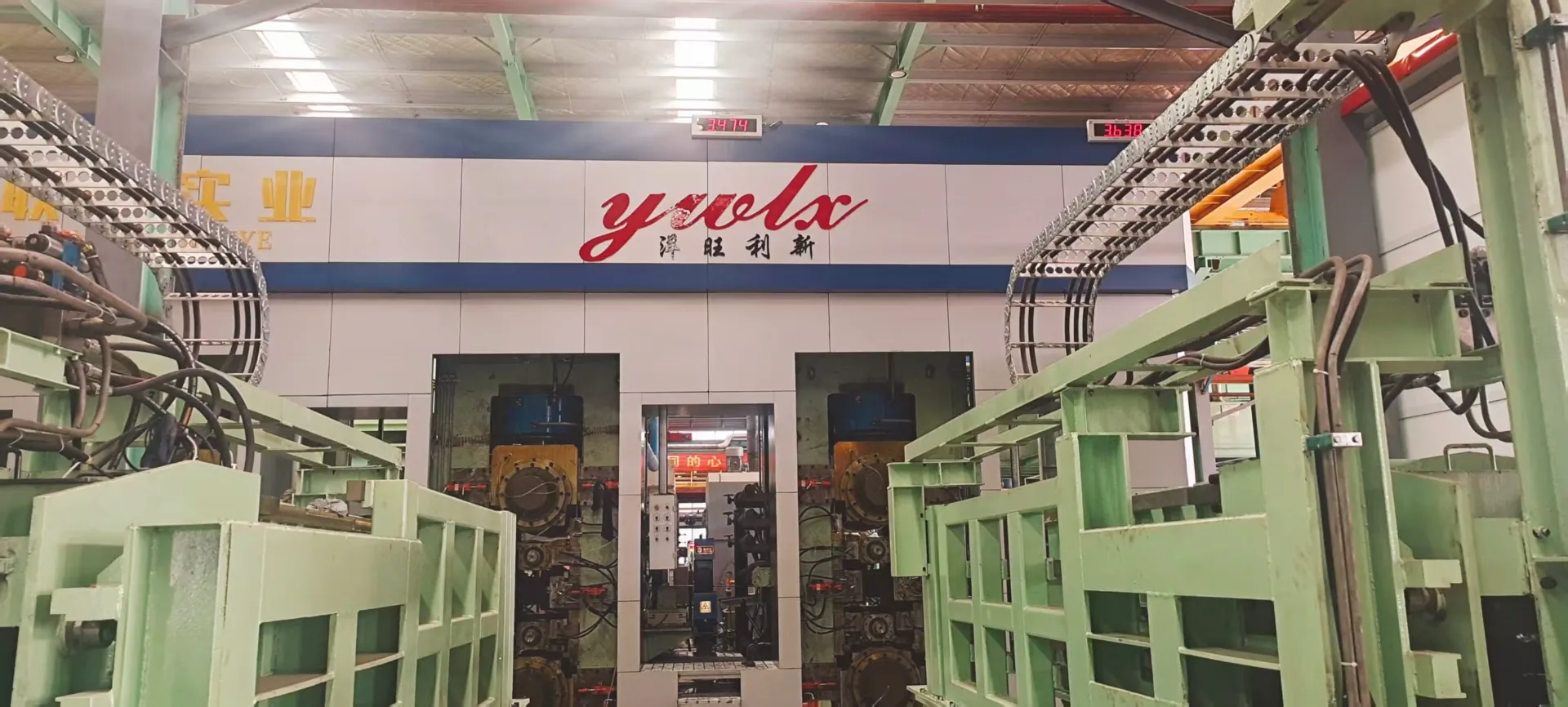
The Skin Pass Mill Improves the Flatness of the Plate and the Product Quality
In the process of rolling and galvanizing galvanized sheet, there may be some defects such as waves and buckling due to the release of material stress and the unevenness of rolling process. These defects not only affect the aesthetics of the product, but also may affect its operability in the subsequent processing. Through accurate pressure control, the skin pass mill can effectively improve the flatness of galvanized sheet and make it reach a higher quality standard.

- Eliminate plate defects and improve flatness.
In the process of galvanizing production, the plate may be slightly deformed due to thermal stress, uneven cooling and other reasons, such as undulation and buckling. Through precisely controlled rolling force, the skin pass mill restores the plate to a more ideal flat state, thus improving the appearance quality and service performance of the product.
- Improve the convenience of subsequent processing.
The galvanized sheet with poor flatness may have precision errors or processing difficulties in the subsequent cutting, bending and stamping processes. For example, in the home appliance industry, galvanized sheet usually needs to be formed by stamping. If the flatness of the sheet is poor, it may lead to poor forming and affect product quality. However, the plate processed by the skin pass mill is easier to process, which improves the production efficiency and the qualified rate of finished products.
- Improve the installation effect of building applications.
In the construction industry, galvanized sheets are often used in roofing and wall systems. If there is flatness problem in the plate, it will not only affect the construction process, but also lead to problems such as unsealed splicing and unstable installation. The galvanized sheet treated by the skin pass mill can better meet the installation requirements in the construction field and improve the overall construction quality.
Skin Pass Mill Optimizes Mechanical Properties and Improves Material Reliability
The mechanical properties of galvanized sheet are very important for its adaptability in application fields. Yield platform and tensile strain mark are important factors that affect the properties of galvanized sheet. The skin pass mill can improve the mechanical properties of the sheet by accurately adjusting its organizational structure, making it more reliable in various application scenarios.
- Eliminate the yield platform and improve the formability.
Yield platform refers to a period of stable area during the stretching process of materials, which easily leads to uneven deformation of plates during processing and affects the accuracy and strength of products. By adjusting the internal stress of the material, the skin pass mill reduces or eliminates the yield platform, which makes the deformation of the plate more uniform in the subsequent processing and improves the quality of the finished product.
- Eliminate tensile strain marks and improve surface quality.
Tensile strain mark refers to the surface stripe defects caused by uneven stress distribution in the forming process. This defect will affect the aesthetics of galvanized sheet, especially in industries that require high surface quality, such as home appliances and automobiles. Through proper rolling treatment, the skin pass mill can reduce or even eliminate the tensile strain marks, making the surface of the plate smoother and more beautiful.
- Make the material performance more uniform and stable.
Through the fine rolling of skin pass mill, the internal structure of galvanized sheet can be more uniform and the material properties are more stable. This optimization not only improves the reliability of the plate, but also enhances its adaptability in various complex environments, such as high temperature, high humidity or corrosive environment, which can still maintain excellent performance.
-
Indian Clients Visit YWLX to Inspect Skin-pass MillNewsJun.22,2025
-
Typical Products from Reversing Cold Rolling ProcessNewsMay.26,2025
-
Surface Finish Improvement through Skin Pass RollingNewsMay.26,2025
-
Integration of AGC Systems in Modern Cold Rolling MillsNewsMay.26,2025
-
Cold Rolling in the Context of High-Strength Steel DemandNewsMay.26,2025
-
AGC in Hot Rolling Mills: Challenges and SolutionsNewsMay.26,2025
-
Why Reversing Cold Rolling Mills Are Ideal for Specialty MetalsNewsMay.13,2025










